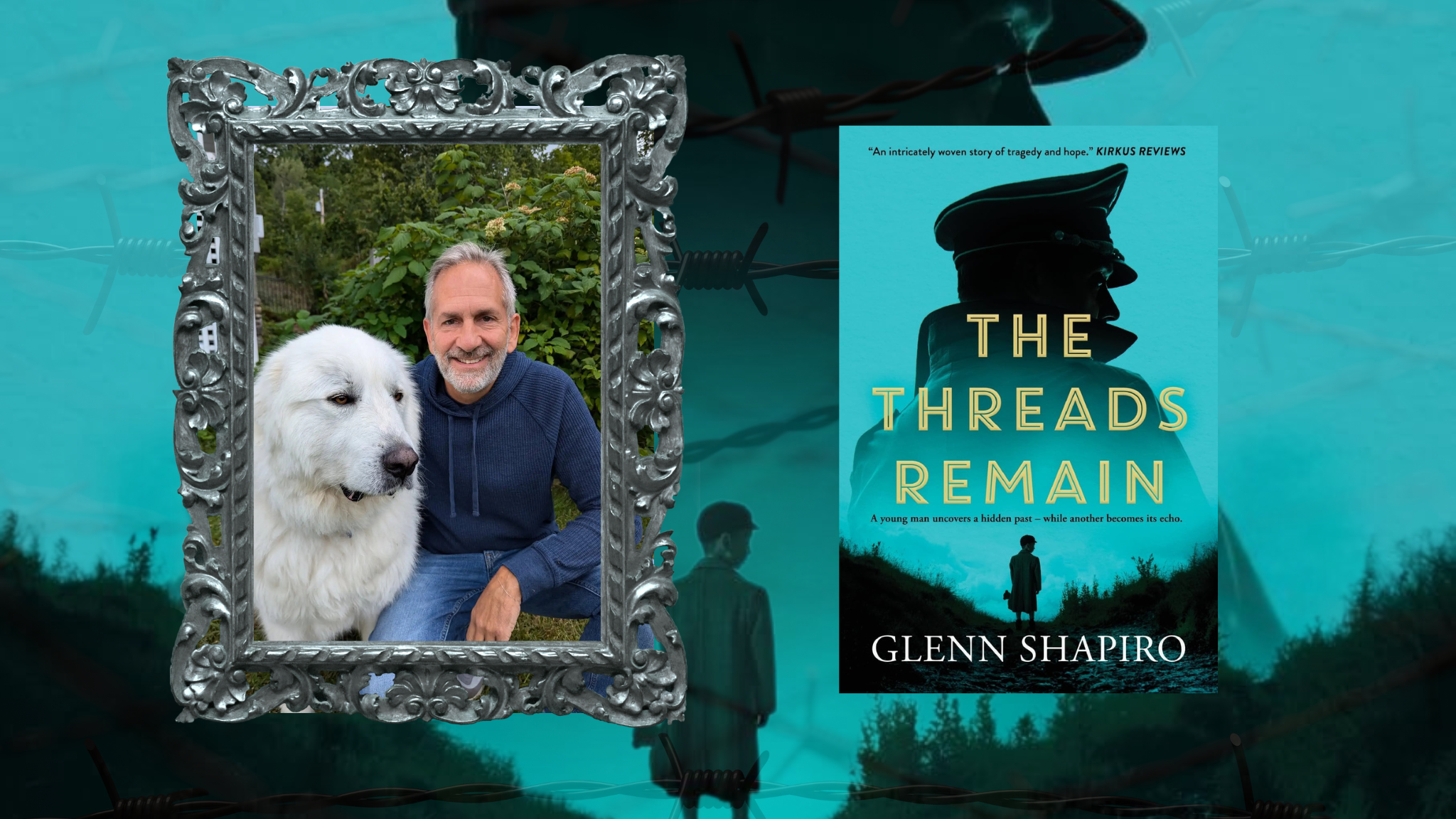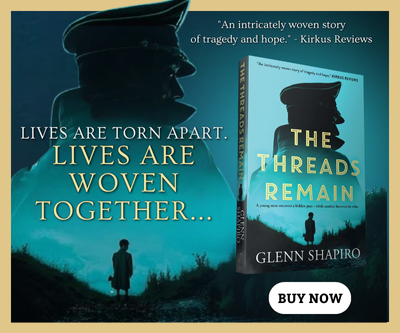What does it mean to come of age in a world where truth itself is a battlefield? Through shifting timelines and converging fates, The Threads Remain wrestles with identity, morality, and the haunting legacies of war.
In this Q&A with author Glenn Shapiro, we step beyond the page to uncover the inspirations, struggles, and visions that gave rise to a tale both intimate and universal.
In portraying Josef, drafted into the SS at only fifteen, you highlight the vulnerability of youth manipulated by ideology. What was most important for you in depicting his struggle with morality and indoctrination?
I thought it was important to portray Josef’s humanity without excusing his actions. We are complex beings, and too often “good and evil” are portrayed in print as such absolute and distinct manners of being. People are complex creatures, and most of us are more than the best or worst thing that we have done. I want the reader to walk in Josef’s shoes and feel the struggle between what he is asked to do and what his conscience tells him is right.
The toy shop serves as both a symbol of innocence and a site of violence and persecution. What does this contrast say about the resilience—or fragility—of beauty in times of hate?
The store itself, and the shopkeepers, Max and Gerda, are symbolic of the innocence lost in times of hate. Without giving any spoilers, I will say that the arc of the story has a full-circle element that ties to that innocence. I wanted to portray that even in times of great evil, there is hope and innocence.
The recurring toy bear, Bärli, becomes a link across characters and time. What does this small object represent for you in the broader arc of the novel?
Bärli is a critical element of the story. This small bear is not only another symbol of the innocence that is lost, or at least severely frayed, during times of extreme hate, but serves as both the literal and figurative threads connecting characters.
Interestingly, Bärli is the only character in the book that you could argue is non-fiction. My mother, born in Germany during WWII, brought her little woven bear, Bärli, into the bomb shelter whenever the air raid sirens sounded. I have the little bear still.
Friedrich’s story, a decade after the war, explores grief, silence, and the search for truth. How does his perspective reflect the struggles of post-war Germany to reconcile with the past?
From a pure writing standpoint, Friedrich’s story allowed me to create a more engaging and entertaining narrative by bringing the readers along as he pulled threads and uncovered a hidden past. At times, the readers learned something before Friedrich did, following the narrative during the war and then later seeing him discover what they already knew. At other times, the readers experience the revelation along with him.
In terms of Germany and the post-war reckoning, Friedrich’s struggle to find his truth was a reality for so many people. The fact that he knew little of the war before undertaking his investigation was also a reality of the 1950s in Germany. The war was a national shame and a secret held out of sthe chool curriculum for decades.
The title, The Threads Remain, suggests something enduring after devastation. How did you arrive at this title, and what does it mean to you in relation to the characters’ journeys?
The title, The Threads Remain, took me almost as long to come to as the writing of the book, but when it did, it was like a lightning bolt. I wanted a title that conveyed multiple truths about this novel and about WWII.
There are three meanings of the title. First, the literal threads of the little bear, Bärli, connect all of the primary characters. Second, Friedrich has to pull the figurative threads of the past or discover who he is and what brought him to where he ended up. Third, I believe that the threads of what caused such atrocities in Germany during the 1930s and 1940s remain today in various places around the world. Hatred and scapegoating are, unfortunately, a part of our current world ,and we risk repeating history if we do not learn from it.
About Glenn Shapiro:
 Glenn Shapiro was born and raised in New England. He is a lifelong writer of poetry and short stories, but made the leap to novels as part of his “second act” after retirement. His first novel, the gold rush era historical fiction Cold Spring, met with acclaim from both critics and readers. He is the son of a Jewish father and German-catholic mother who was born in Germany during the war and raised there, post-war, through her adolescence. For his second novel, The Threads Remain, he tackled that tragic time in history through characters inside Germany before, during and after the war.
Glenn Shapiro was born and raised in New England. He is a lifelong writer of poetry and short stories, but made the leap to novels as part of his “second act” after retirement. His first novel, the gold rush era historical fiction Cold Spring, met with acclaim from both critics and readers. He is the son of a Jewish father and German-catholic mother who was born in Germany during the war and raised there, post-war, through her adolescence. For his second novel, The Threads Remain, he tackled that tragic time in history through characters inside Germany before, during and after the war.




